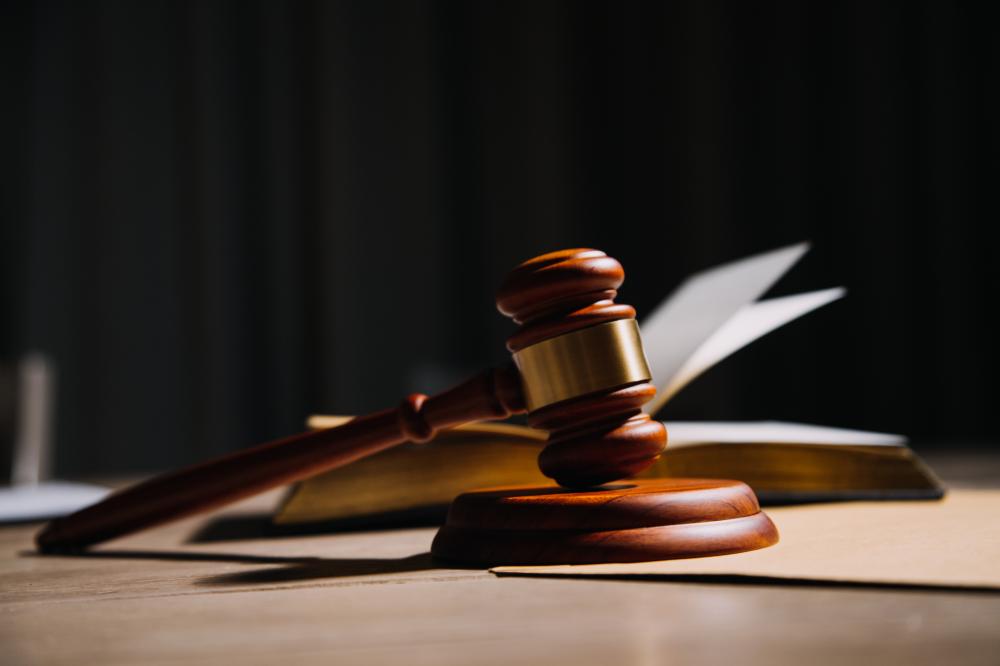Table of Contents
Understanding Mechanics Lien Colorado Law
When it comes to protecting the interests of those in the construction industry, the mechanics lien Colorado law is a crucial legal tool. Here at SJJ Law Firm, we’ve seen firsthand how this statute serves as a safeguard for contractors, subcontractors, and material suppliers who have poured their sweat into improving a property. But it’s more than just a protective measure–it’s a right enshrined in Colorado law that ensures proper compensation is received for hard-earned work.
The Basics of Colorado’s Mechanics Lien
A mechanics lien, by definition, is a security interest in the title of a property for the benefit of those who have supplied labor or materials that improve the property. It’s a powerful form of protection–but it’s also a process that requires strict adherence to regulations.
Having enforced and challenged these liens for clients, our experience tells us that timing is everything. Filing must occur within certain deadlines after work has been completed or materials supplied; otherwise, the right to claim the lien can be lost. Such precision is necessary for the lien to be valid and enforceable, which can be daunting without proper legal guidance.
Eligibility for Filing a Lien
The scope of who can file a lien under mechanics lien Colorado law is broad but specific. It covers contractors, laborers, and material suppliers, among others. However, not every interaction with a property leads to lien rights. Routine maintenance tasks, for instance, are generally excluded.
Our attorneys have navigated complex disputes where the determination of eligibility became the deciding factor in a lien’s validity. We recall a case where a landscaping company’s installation work qualified for a lien, but their subsequent maintenance did not. Recognizing these distinctions is pivotal to the successful claim of a lien.
Navigating the Filing Process
The mechanics lien Colorado law stipulates a multi-step process for filing a lien. Having represented both property owners and contractors, we’ve seen the confusion that may arise.
From preparing the Notice of Intent to Lien to the actual recording of the Mechanics Lien Statement, each step demands attention to detail and precision. Our approach is thorough: we help clients understand the importance of serving notices correctly and guarding against potential pitfalls that can invalidate a lien.
Priority of Liens
In my professional journey, I’ve often emphasized to clients how the priority of a lien can affect its enforcement. This aspect of mechanics lien Colorado law is commonly misunderstood, yet it’s critical when multiple liens are placed on a property.
Lien priority generally follows the maxim “first in time, first in right,” meaning earlier liens take precedence over those recorded later. However, certain super-priority liens, such as those for unpaid real estate taxes, can disrupt this order, demanding nuanced legal strategies to navigate.
Enforcing a Mechanics Lien
Once a lien is filed, enforcement becomes the next hurdle. I’ve counseled clients through foreclosure actions, a remedy that allows lienholders to force the sale of the property to recover owed sums. However, this is a legal action replete with complexities and should never be initiated lightly.
During one memorable case, our firm successfully guided a client through the enforcement process, underscoring how vital it is to understand each step’s legal implications. We believe in empowering our clients with knowledge to make informed decisions about enforcing their liens.
Challenges to a Lien
Identifying Invalid Claims
Not all liens are created equal. Sometimes, individuals may face what are known as “spurious liens” – liens filed without a legitimate basis. Our role often involves scrutinizing lien claims to determine their validity, which requires a keen understanding of both the letter and spirit of the law.
Disputing Spurious Liens
Disputing a lien requires a strategic legal response. Our attorneys are adept at navigating the statutory mechanisms to challenge improper liens, thereby protecting our clients’ property rights. We have found that a proactive stance in these matters can prevent significant stress and financial burdens down the line.
Legal Recourse for Property Owners
Property owners are not without recourse when faced with a spurious lien. Colorado law provides an expedited process to challenge and remove such liens. Drawing from our extensive experience, we provide assertive representation to ensure our clients’ properties remain unencumbered by unjust claims.
Concluding Advice and Guidance
The journey through the landscape of mechanics lien Colorado law is one that need not be traveled alone. At SJJ Law Firm, our commitment to clients extends beyond mere representation. We become advocates for their rights, advisors on their options, and educators on the intricacies of the law.
Your property and your work are your legacies. They are tangible representations of your dedication and perseverance. When it comes to protecting these assets through the application of mechanics lien Colorado law, trust in a firm that approaches each case with the seriousness and meticulousness it deserves.
Should you find yourself navigating this complex terrain, know that SJJ Law Firm is here to guide you every step of the way. With our expertise at your disposal, you can confidently assert your rights and secure what is duly yours. Your investment in your property, your project, your future–should not be left to chance.

What is required for a mechanic’s lien in Colorado?
At SJJ Law Firm, we emphasize to our clients that a mechanic’s lien in Colorado requires meticulous attention to the state’s statutory requirements. To establish a valid lien, you must have contributed materials or labor that substantially improved the property. The lien must be filed within four months following the last delivery of materials or completion of work. Additionally, a Notice of Intent to Lien should be served to the property owner at least ten days before filing the lien. It’s crucial to document every step and ensure the lien statement includes all necessary information, such as the correct legal property description, amount due, and the lien claimant’s details. Remember, any misstep can invalidate your claim.
How do I fight a mechanics lien in Colorado?
When it comes to disputing a mechanic’s lien, the approach here at SJJ Law Firm is strategic and informed by the nuances of Colorado law. If you’re the property owner and you believe the lien is spurious, you can file a petition to have the lien released. This petition must be filed in the district court for the county where the property is located. We usually recommend that our clients act swiftly, to avoid the lien affecting the property’s title. The challenge will typically involve proving that the lien was filed improperly or that the service provider did not follow the required procedures.
What is the statute of limitations on a mechanics lien in Colorado?
In Colorado, the time frame to enforce a mechanics lien is tightly regulated. Once recorded, the claimant has six months to initiate a foreclosure action on the lien. If this deadline is missed, the lien automatically expires and loses its potency as a legal claim. It’s critical to keep an eye on this deadline, as I’ve seen cases where lien claimants wait too long and forfeit their rights to recover what they’re owed. At our firm, we ensure that our clients are well aware of these dates to protect their financial interests.
What is the priority of a mechanic’s lien in Colorado?
The priority of a mechanic’s lien in Colorado can be quite complex. Generally, a mechanic’s lien has priority over other liens that are recorded after the construction begins. This means if the property is sold under foreclosure, the mechanic’s lien will be paid out before newer encumbrances. However, it’s not always straightforward. For example, liens held by tax authorities can supersede a mechanic’s lien. I’ve guided many clients through these murky waters to help them understand where they stand in the hierarchy of claims against a property.
What steps can stakeholders take to protect themselves against unfounded lien claims in Colorado?
One proactive measure we advocate for at SJJ Law Firm is diligent record-keeping and clear communication throughout any construction project. Stakeholders, whether contractors, owners, or subcontractors, should maintain detailed records of all agreements, change orders, and payments. If you’re a property owner, conducting thorough due diligence before hiring contractors, and ensuring your contractors pay their subs can mitigate the risk of liens. If a lien is still filed, having comprehensive records can be the cornerstone of disputing an unfounded claim. A solid understanding of Colorado’s mechanics lien law and, when necessary, working with a knowledgeable attorney can serve as a strong defense against unjust liens.


